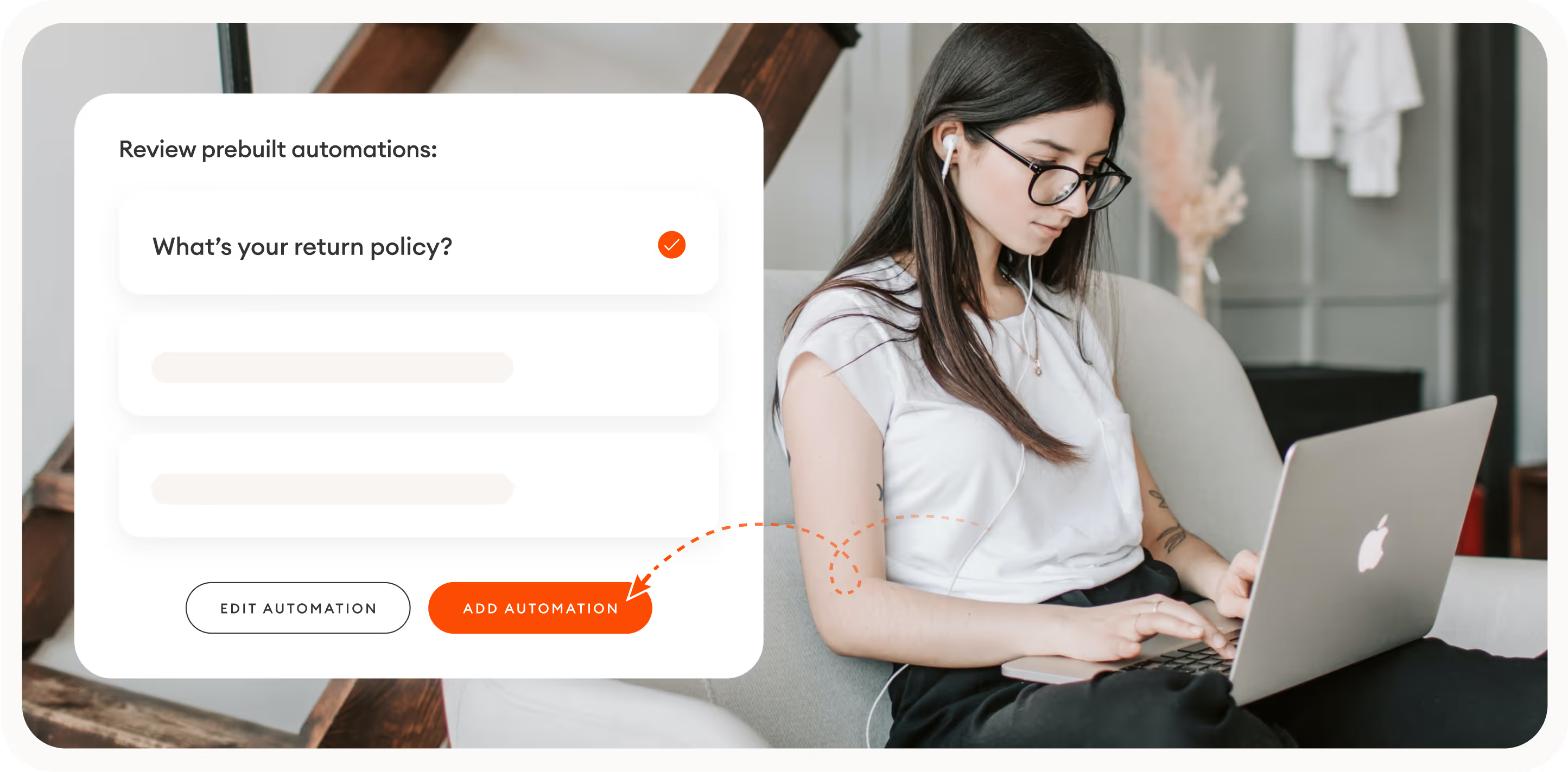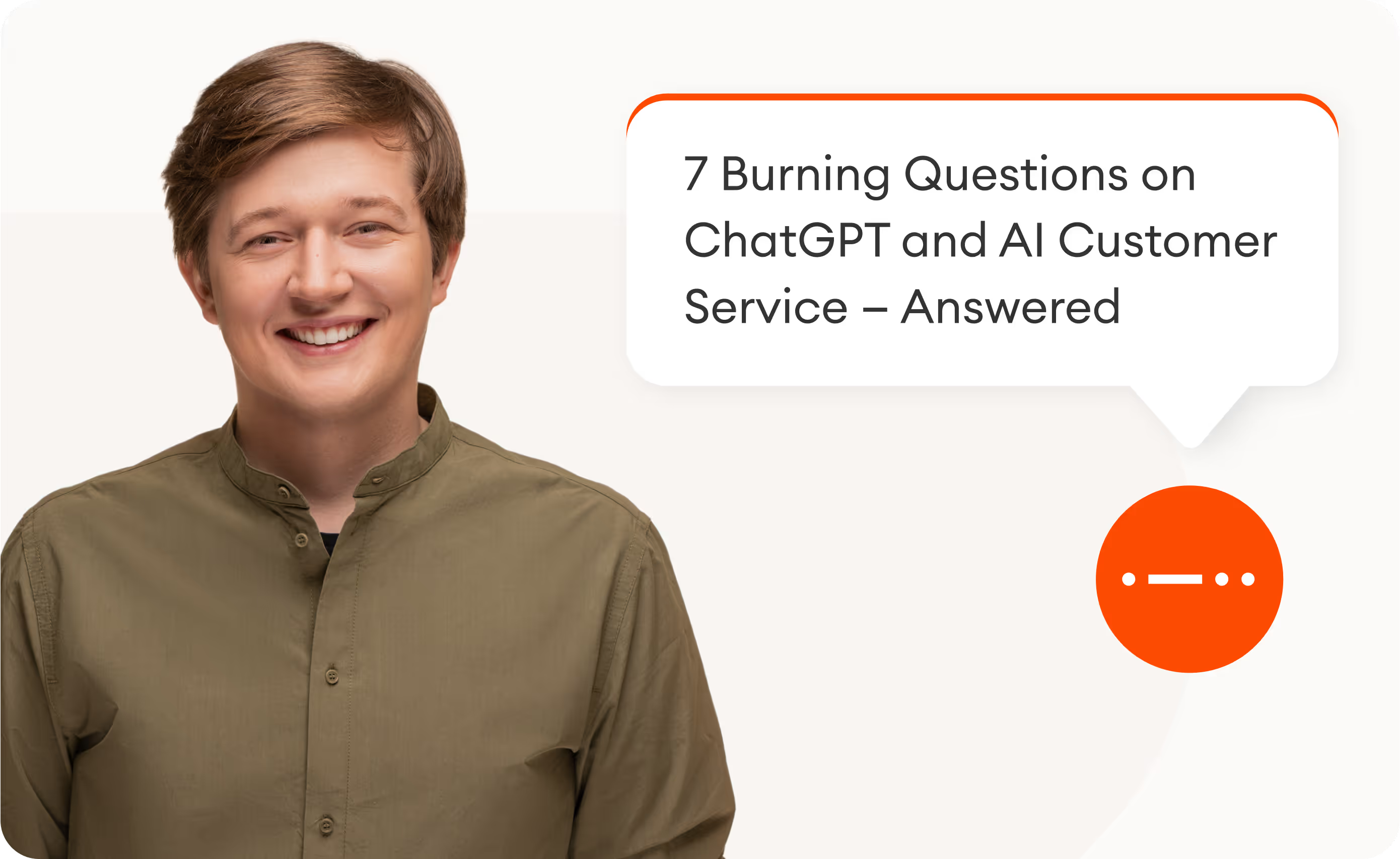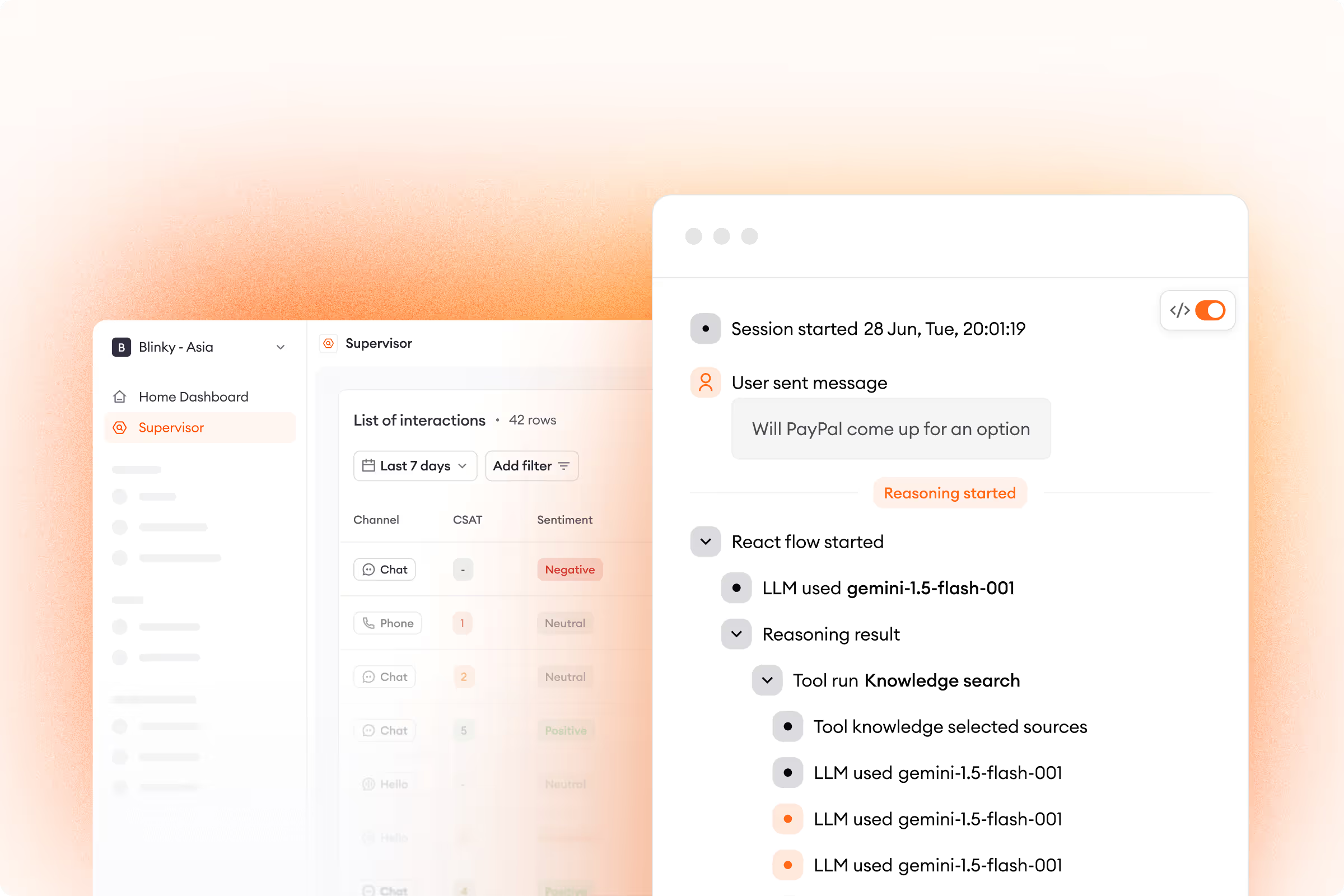Led by ChatGPT, artificial intelligence (AI) is irreversibly transforming how businesses interact with customers. If you feel like this advanced tech is going over your head, you’re not alone.
In our recent webinar, ChatGPT, AI & the Future of Customer Service, Zowie CPTO and Co-Founder Maciek Ciolek addressed our audience’s burning questions surrounding AI’s role in customer support. Here’s a rundown of our answers — in plain English.

Top 7 questions on ChatGPT and AI in customer service
1. How does ChatGPT work?
Like all AI chatbots, ChatGPT is built on a large language model (LLM), an algorithm that’s trained on massive datasets to recognize and generate content. OpenAI, the creators of ChatGPT, trained their LLM on billions of sentences pulled from the Internet to build a chatbot capable of understanding written prompts and delivering human-like responses on an immense range of topics.
In other words, LLMs learn the same way a child learns a new language. With time and effort, an LLM understands the meanings of words and the connections between them. It can then construct sentences, classify content, and handle more advanced tasks like detecting similarities in different questions, like Where’s my order? and Can I track my package?
2. Why is AI so popular right now?
This technology’s been around for years, but ChatGPT has finally shown a wider audience that AI chatbots actually work. Earlier chatbots often delivered clunky or nonsensical answers, and it was obvious to users that they were interacting with a bot. This reputation stuck around, and the public at large remained unconvinced that chatbots could actually offer a pleasant experience.
ChatGPT has finally demonstrated to millions of users that these AI tools can not only give helpful answers, but they can do so in a remarkably human way. And Microsoft, an OpenAI investor, is set on bringing this technology into the mainstream by showcasing just how user-friendly it can be. For the first time, a tool has successfully highlighted that AI has mass market appeal.
“For the majority of companies, email or phone is the most important support channel because people had negative experiences with chat. Thanks to AI, internet users can now access great conversational technology that’s easy to use and customize. We can expect chat adoption to be higher because it empowers users and brings instant answers.”
— Maciek Ciolek
3. What’s the difference between ChatGPT and Bard?
ChatGPT isn’t the only chatbot everyone’s buzzing about. Developed by Google, Bard is a conversational AI chatbot powered by the LaMDA family of language models. ChatGPT is built on the GPT-4 LLM family.
What else sets the two apart? Neither is objectively better than the other. They’re both built on massive (and similar) datasets and are incredibly efficient at answering questions on a variety of topics. Moreover, both make use of generative AI to craft creative responses that feel natural. That being said, both lack access to the most up-to-date information, relying on data from 2021 at the latest, meaning neither can guarantee current or factually accurate answers.
4. What’s the difference between ChatGPT and a customer service chatbot?

ChatGPT is a powerful resource for general knowledge, but it isn’t ready to handle customer service questions for any specific business. ChatGPT hasn’t been — and can’t be — trained on any given ecommerce website’s knowledge base, so common support questions like What’s your return policy? and Can I get a refund? will trip it up.
Customer service automation platforms like Zowie come with prebuilt automations for the top ecommerce questions and can analyze any website’s knowledge base. This enables them to answer the bulk of questions customers may have with personalized responses that fit each brand’s unique voice. On top of that, solutions built specifically for customer service learn over time by accessing real-time data, enabling them to consistently provide up-to-date responses — unlike ChatGPT.
“ChatGPT uses older, general knowledge about the world, but it doesn’t know specifics. What’s unique about Zowie is how we’re using AI that’s specific to ecommerce. Our customers can benefit from this technology thanks to our ready-to-use automation. We already know how to respond to the top ecommerce questions — ChatGPT doesn’t.”
— Maciek Ciolek
5. How will the technology behind ChatGPT impact customer service?
ChatGPT can’t be deployed in customer service just yet, but the AI that powers it — and solutions like Zowie — is already impacting the field in profound ways. It’s certainly increased accessibility to information, and it’s motivated several companies to invest more in AI and conversational interfaces. We’re bound to see more tools down the line capable of revolutionizing how customers interact with brands.
More specifically, AI is enabling today’s top chatbots to start automating customer questions with fewer learning phrases. In addition, chatbot configuration has been totally streamlined as more platforms can instantly understand and pull information from a company’s FAQs. As chatbots will only continue delivering more natural and intuitive exchanges, expect to see a noted improvement in the customer experience as well.
Customer service automation platforms like Zowie are already improving support metrics across the board, boosting CSAT scores and lowering response and resolution times. Book a demo today to see how Zowie can equip your team to delight customers.
6. What are ChatGPT’s limitations?
As a customer service chatbot, ChatGPT’s practical value is still limited. By its very nature, it’s meant to give generalized answers that can’t be tailored to a specific support team’s needs. A single company can’t feed it any information of its own, so there’s no way to ensure it’s providing accurate information about your business.
Consistency is another issue. ChatGPT isn’t meant to follow a predefined script, which is bad news for a support team looking to maintain high-quality answers. Since it generates new content from scratch, there’s always a degree of unpredictability in its answers.
7. How will ChatGPT impact agents? Will it take away jobs?
No, ChatGPT and AI will not steal any jobs in customer support. Customer service automation solutions like Zowie are capable of automating at least 70% of customer queries, but the remaining 30% are complex cases that require the expertise of a human agent. When it comes to generative AI, human agents will also be vital as they’ll be needed to review any content for accuracy and tone before it’s sent to customers.
In sum, AI will only enhance the agent experience. Features like AI-generated templates and message suggestions empower agents to perform more efficiently. Instead of manually spending hours on repetitive tasks, agents can hand their routine work over to AI solutions and focus on more urgent things that require their expertise.
“Our customers are able to automate 70-80% of their questions on average, which means that only 20% pass through to customer service agents. But the things that are getting through are very complicated, and we need well-skilled agents to provide solutions.”
— Maciek Ciolek
Learn all about AI from an expert
ChatGPT may have caught the public’s attention, but AI-powered solutions have already been upgrading customer service departments for years. Don’t let doubt get in the way of your progress.
To ensure your team stays ahead of the curve, watch our full webinar with Maciek Ciolek, ChatGPT, AI & the Future of Customer Service, available on demand. Get all your questions answered and start leveraging AI to unlock your customer support’s full potential.

.avif)

.avif)
.svg)







